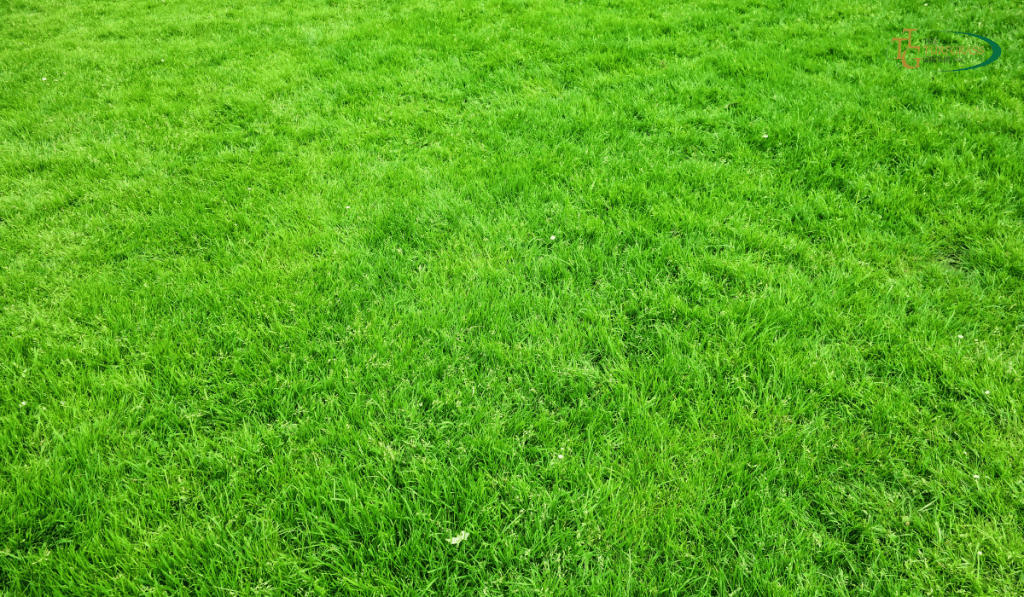
Choosing the right fertilizer is crucial when maintaining a beautiful Bermuda grass lawn. A well-nourished lawn not only looks appealing but also withstands various environmental challenges. This article will explore the good fertilizer options for Bermuda grass and provide valuable insights on optimizing your lawn’s health and appearance. Let’s dive in!
Best Weed and Feed for Bermuda Grass: A Two-in-One Solution
One of the challenges faced by Bermuda grass lawn owners is weed control. Weeds can compete with Bermuda grass for essential nutrients and hinder its growth. Using a weed and feed fertilizer is highly recommended to address this issue. This fertilizer combines herbicides to control weeds and critical nutrients to nourish the Bermuda grass. To ensure optimal results, look for weed and feed products specifically formulated for Bermuda grass.
When to Fertilize Bermuda Grass: Timing is Key

tTiming is vital in achieving the best results when fertilizing Bermuda grass. The ideal fertilization time is during active growth, typically in late spring and early summer. Fertilizing now gives the grass the necessary nutrients to promote healthy growth and vibrant color. Additionally, consider a second application in early fall to boost the lawn’s resilience and prepare it for winter dormancy.
Best Fertilizer for Bermuda Grass in Texas: Tailoring to Regional Needs
Texas presents unique challenges for Bermuda grass lawns due to its diverse climate and soil conditions. When choosing a fertilizer, it is essential to consider these regional factors. Look for fertilizers formulated explicitly for Texas lawns, feeling the region’s soil composition, climate patterns, and specific nutrient requirements of Bermuda grass. These specialized fertilizers will help ensure optimal growth and a lush, resilient lawn.
Unveiling the Best Fertilizer for Bermuda Grass
The question of what constitutes the best fertilizer for Bermuda grass is common. It is essential to choose a fertilizer with a balanced nutrient composition, specifically formulated to meet the needs of Bermuda grass. A popular choice is the 10-10-10 fertilizer, which provides an equal ratio of nitrogen (N), phosphorus (P), and potassium (K). This balanced formula encourages healthy growth, root development, and lawn vigor.
Spring Fertilizer for Bermuda Grass: Kicking Off the Growing Season
Spring marks the beginning of the growing season for Bermuda grass, making it a critical time for fertilization. A spring fertilizer with a higher nitrogen content is recommended to support the grass’s rapid growth during this period. Nitrogen promotes leaf and shoots development, allowing the Bermuda grass to establish a dense and vibrant turf. Look for fertilizers labeled specifically for spring applications to provide the nutrients for a healthy start.
Nitrogen for Bermuda Grass: Fueling Growth and Color
Nitrogen is a vital nutrient for Bermuda grass as it plays a significant role in its growth and color. Nitrogen promotes chlorophyll production, the pigment responsible for green grass. When selecting a fertilizer, ensure it contains sufficient nitrogen to support healthy growth and vibrant coloration. However, be mindful not to overapply nitrogen, as it can lead to excessive top growth and increase the risk of disease and pests.
Fall Fertilizer for Bermuda Grass: Preparing for Dormancy
Bermuda grass transitions into a dormant phase when the growing season nears its end. However, preparing the lawn for winter is crucial to ensure a healthy return in the following spring. Applying a fall fertilizer with a lower nitrogen content and a higher potassium ratio helps strengthen the grass’s root system and enhances its resilience to cold temperatures. This prepares the lawn for a swift recovery and vibrant growth when the warmer months return.
Best Spring Fertilizer for Bermuda Grass: Key Nutrients for Renewed Growth
Spring is a critical time for Bermuda grass as it emerges from its winter dormancy and resumes active growth. Providing the lawn with the proper nutrients during this period sets the foundation for a lush and vibrant summer lawn. Look for a spring fertilizer with a higher nitrogen content and a balanced blend of phosphorus and potassium. This combination fuels renewed growth, promotes root development, and strengthens the grass’s health.
Winter Fertilizer for Bermuda Grass: Supporting Root Health
Although Bermuda grass enters dormancy during winter, it is essential to maintain root health and prepare the lawn for the following year. Therefore, winter fertilizers with a higher potassium content are recommended during this period. Potassium helps improve the grass’s cold tolerance and ensures strong root development, allowing the lawn to recover quickly when warmer temperatures return. Apply the winter fertilizer according to the manufacturer’s instructions to maximize its benefits.
How Often to Fertilize Bermuda Grass: Finding the Right Frequency

Frequent fertilization is critical to maintaining a healthy Bermuda grass lawn. However, finding the right balance is crucial to prevent overfertilization and potential damage to the grass. Generally, Bermuda grass lawns benefit from a fertilization schedule of 4-6 applications per year, spaced evenly throughout the growing season. Modify the frequency of lawn maintenance based on the specific requirements of your lawn, taking into account factors like soil conditions, climate, and the overall health of the grass.
Best Liquid Fertilizer for Bermuda Grass: Convenient and Effective
Liquid fertilizers offer a convenient and efficient way to provide essential nutrients to Bermuda grass. The grass quickly absorbs them and can deliver nutrients directly to the roots, promoting rapid growth and vibrant color. Look for liquid fertilizers designed for Bermuda grass lawns and follow the recommended application rates. These fertilizers can be applied using a sprayer or hose-end attachment for easy and precise distribution.
Best Fertilizer for Bermuda Grass in Georgia: Addressing Regional Needs
Georgia’s climate and soil conditions present specific challenges for Bermuda grass lawns. When selecting a fertilizer, consider products tailored to Georgia’s regional requirements. Look for fertilizers that account for the state’s humidity, temperature variations, and soil composition. These specialized fertilizers will provide the necessary nutrients to support healthy growth and help your Bermuda grass thrive in the local environment.
What Fertilizer to Use on Bermuda Grass: Key Considerations
Choosing the right fertilizer for Bermuda grass can be overwhelming, given the variety of options available. When deciding on a fertilizer, consider nutrient composition, granular or liquid form, and specific grass needs. Look for fertilizers with a balanced nutrient ratio and micronutrients such as iron to promote optimal growth and color. Additionally, consider the convenience of application and compatibility with your lawn care routine.
How to Fertilize Bermuda Grass: Tips for Success
Applying fertilizer correctly is crucial to maximize its benefits and ensure the health of your Bermuda grass. Follow these tips for successful fertilization:
- Begin by mowing your lawn to the desired height.
- Apply the fertilizer evenly, following the manufacturer’s instructions for the recommended coverage rate.
- Water the lawn immediately after fertilization to help the nutrients reach the grass’s roots.
- To avoid placing stress on the grass, it is advisable to refrain from fertilizing during periods of drought or extreme heat.
- Consider using a spreader to ensure uniform coverage and to avoid overfertilization in certain areas.
- Regularly monitor the grass’s response to the fertilizer and adjust as needed based on its health and growth.
Keep Your Bermuda Grass Healthy With Proper Fertilization
Maintaining a healthy Bermuda grass lawn requires proper fertilization as an essential component. Providing the proper nutrients at the right time ensures vibrant color, vigorous growth, and increased resistance to weeds, pests, and diseases. Choose the best fertilizer for your specific needs and follow recommended application guidelines. You can enjoy a lush and inviting outdoor space for years with a well-nourished Bermuda grass lawn.
FAQs
What kind of fertilizer is best for Bermuda grass?
The best fertilizer for Bermuda grass has a balanced nutrient composition formulated explicitly for Bermuda grass lawns. Look for fertilizers with a ratio of nitrogen (N), phosphorus (P), and potassium (K), such as the 10-10-10 fertilizer. Additionally, consider fertilizers that contain micronutrients like iron to promote optimal growth and color.
When should I fertilize my Bermuda grass lawn?
For Bermuda grass lawns, the ideal fertilization time is during the active growth period, typically in late spring and early summer. This timing gives the grass nutrients for healthy growth and vibrant color. Subsequently, contemplate applying a second round of fertilizer in early fall to fortify the lawn and ready it for the dormant winter period.
How do I make my Bermuda grass thicker and greener?
To make your Bermuda grass thicker and greener, proper fertilization is essential. Select a fertilizer with higher nitrogen content to encourage the growth and development of leaves and shoots. Additionally, ensure adequate watering, regular mowing at the appropriate height, and proper weed control. Providing the right nutrients and care will make your Bermuda grass thicker and greener over time.
Is 16-4-8 fertilizer good for Bermuda grass?
While a 16-4-8 fertilizer can provide some nutrients to Bermuda grass, there may be better options. For example, Bermuda grass typically benefits from a more balanced nutrient ratio, such as the 10-10-10 fertilizer. However, if you use a 16-4-8 fertilizer, be mindful of the nitrogen content and avoid overapplication, as excessive nitrogen can lead to excessive top growth and potential issues.
Is 10-10-10 suitable for Bermuda grass?
Yes, a 10-10-10 fertilizer is suitable for Bermuda grass. It provides a balanced ratio of nitrogen, phosphorus, and potassium, which supports overall lawn health, growth, and color. When using a 10-10-10 fertilizer, follow the recommended application rates and consider the specific needs of your lawn based on factors such as soil conditions and climate.
How many times a year should you fertilize Bermuda grass?
Bermuda grass lawns typically benefit from 4-6 fertilizer applications per year. Distribute these applications evenly throughout the active growing season, commencing in late spring and concluding in early fall. Adjust the frequency based on your lawn’s needs, considering soil conditions, climate, and the grass’s overall health.
Can you put too much fertilizer on Bermuda grass?
Yes, applying too much fertilizer to Bermuda grass can harm its health. Overfertilization can lead to excessive top growth, increased vulnerability to disease and pests, and nutrient imbalances. Follow the recommended application rates and consider the specific needs of your Bermuda grass to prevent overfertilization and potential damage.
Can you fertilize Bermuda in September?
Fertilizing Bermuda grass in September can be beneficial, especially in regions with a longer growing season. Applying a fall fertilizer during this time helps strengthen the grass’s root system and enhances its resilience to colder temperatures. It prepares the lawn for winter dormancy and promotes healthy growth when the next growing season begins.
How late can you fertilize Bermuda?
The exact timing for the last fertilizer application of the year for Bermuda grass depends on your location and climate. Nonetheless, as a general guideline, it is recommended to conclude fertilization before the grass enters its dormant phase in late fall or early winter.
Consult local lawn care resources or contact a professional for specific recommendations based on your region.
How do you encourage Bermuda grass to spread?
Proper fertilization and care are essential to encourage Bermuda grass to spread and fill in bare or thin areas. Ensure your lawn receives adequate sunlight, water, and nutrients. Regularly mow at the appropriate height to promote lateral growth and discourage weeds. Additionally, consider overseeding with Bermuda grass seed or using sprigs or plugs to fill bare patches.
Should you bag Bermuda grass clippings?
Bermuda grass clippings can provide valuable nutrients to the lawn, so it is generally recommended to leave them on the grass. When mowing, use a mulching mower or a mower with a mulching attachment to finely chop the clippings, allowing them to decompose quickly and release nutrients back into the soil. This practice promotes healthy growth and reduces the need for additional fertilization.
How do you make Bermuda grass dark green?
To make Bermuda grass dark green:
- Ensure it receives proper care and nutrition.
- To ensure proper hydration of the grass, it is important to adhere to a regular watering schedule.
- Apply a balanced fertilizer with a higher nitrogen content to promote lush, green growth.
- Mow at the appropriate height to encourage density and discourage weeds.
Following these practices will help achieve a dark green color for your Bermuda grass.
What is the best fertilizer for Bermuda grass in the summer?
During summer, Bermuda grass requires additional nutrients to withstand heat and stress. Look for a fertilizer specifically formulated for summer use, with a balanced nutrient ratio and a higher potassium content. Potassium helps enhance the grass’s tolerance to heat and drought. Applying a summer fertilizer according to the manufacturer’s instructions will help keep your Bermuda grass healthy and vibrant during the hotter months.
What causes Bermuda grass to turn yellow?
Several factors can cause Bermuda grass to turn yellow. Nutrient deficiencies, particularly nitrogen, can lead to yellowing of the grass blades. Inadequate watering, overwatering, compacted soil, or poor drainage can also contribute to yellowing. Additionally, pests, diseases, and environmental stressors can cause discoloration. Identifying and addressing the underlying cause through proper care and appropriate fertilization can help restore the grass’s green color.
Is Scotts Turf Builder good for Bermuda?
Scotts Turf Builder is a famous brand that offers various fertilizers, some suitable for Bermuda grass. When selecting a Scotts Turf Builder product, look for one formulated explicitly for Bermuda grass lawns. In addition, consider the nutrient composition, application instructions, and regional recommendations provided by the manufacturer. This will help you choose the right Scotts Turf Builder fertilizer to promote the health and vitality of your Bermuda grass lawn.